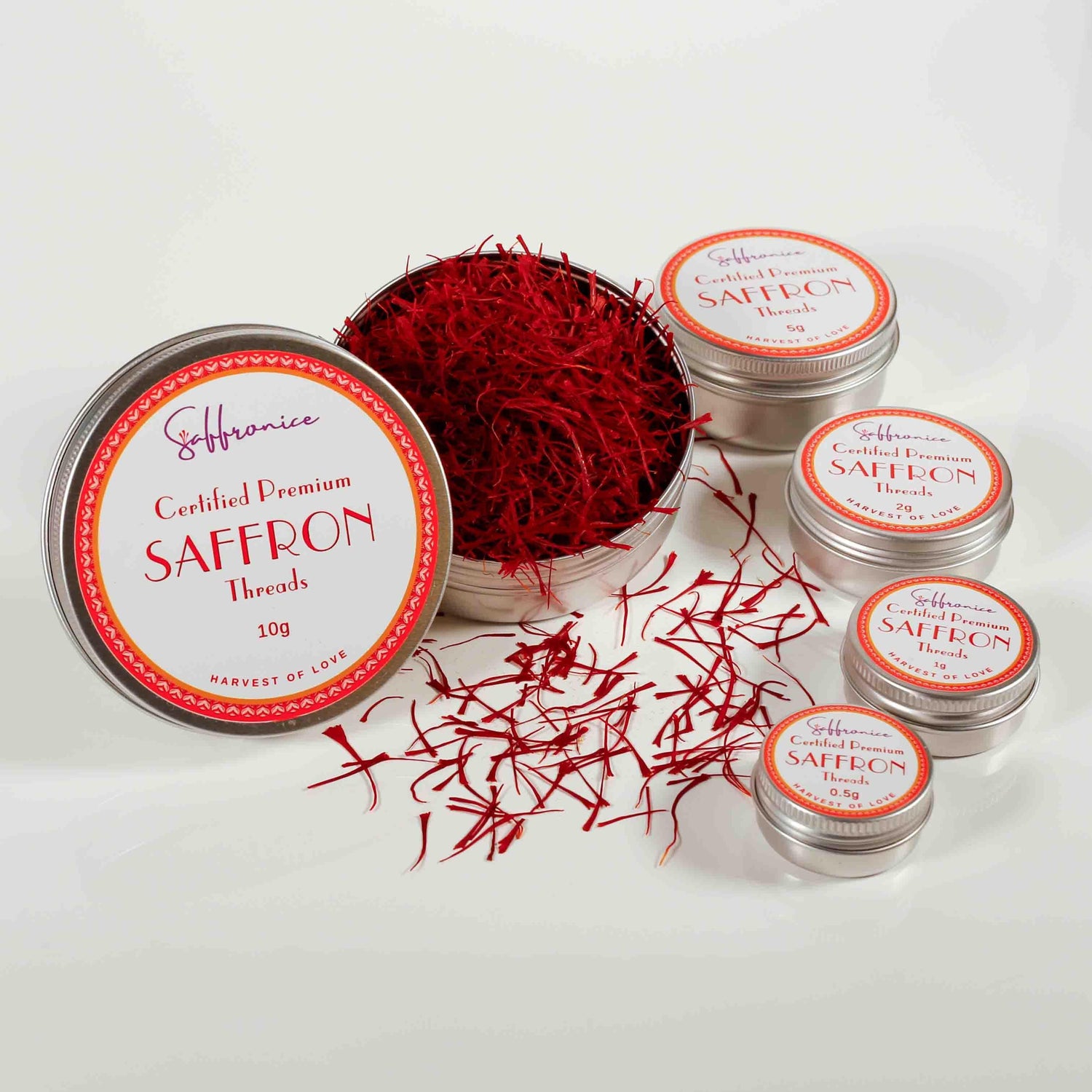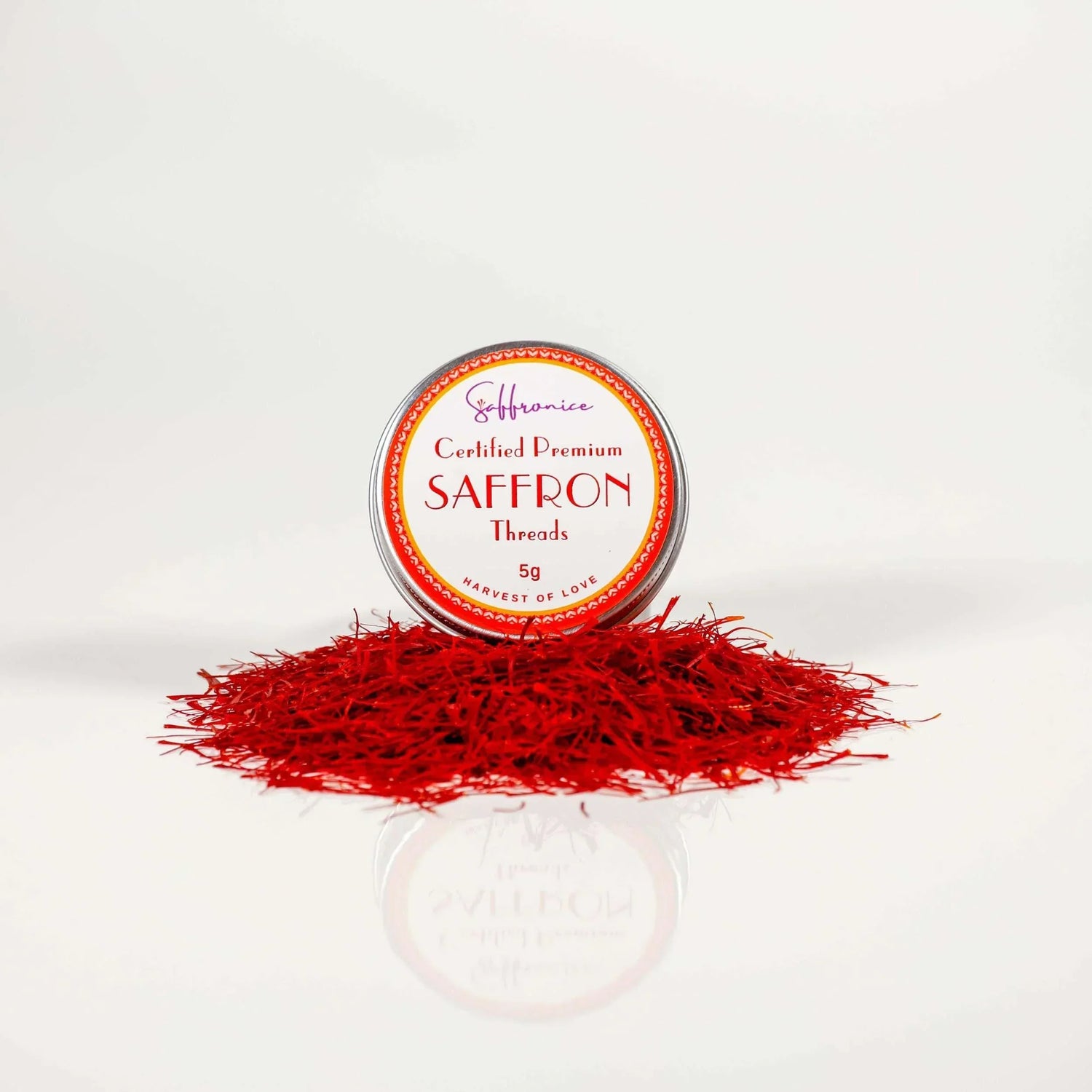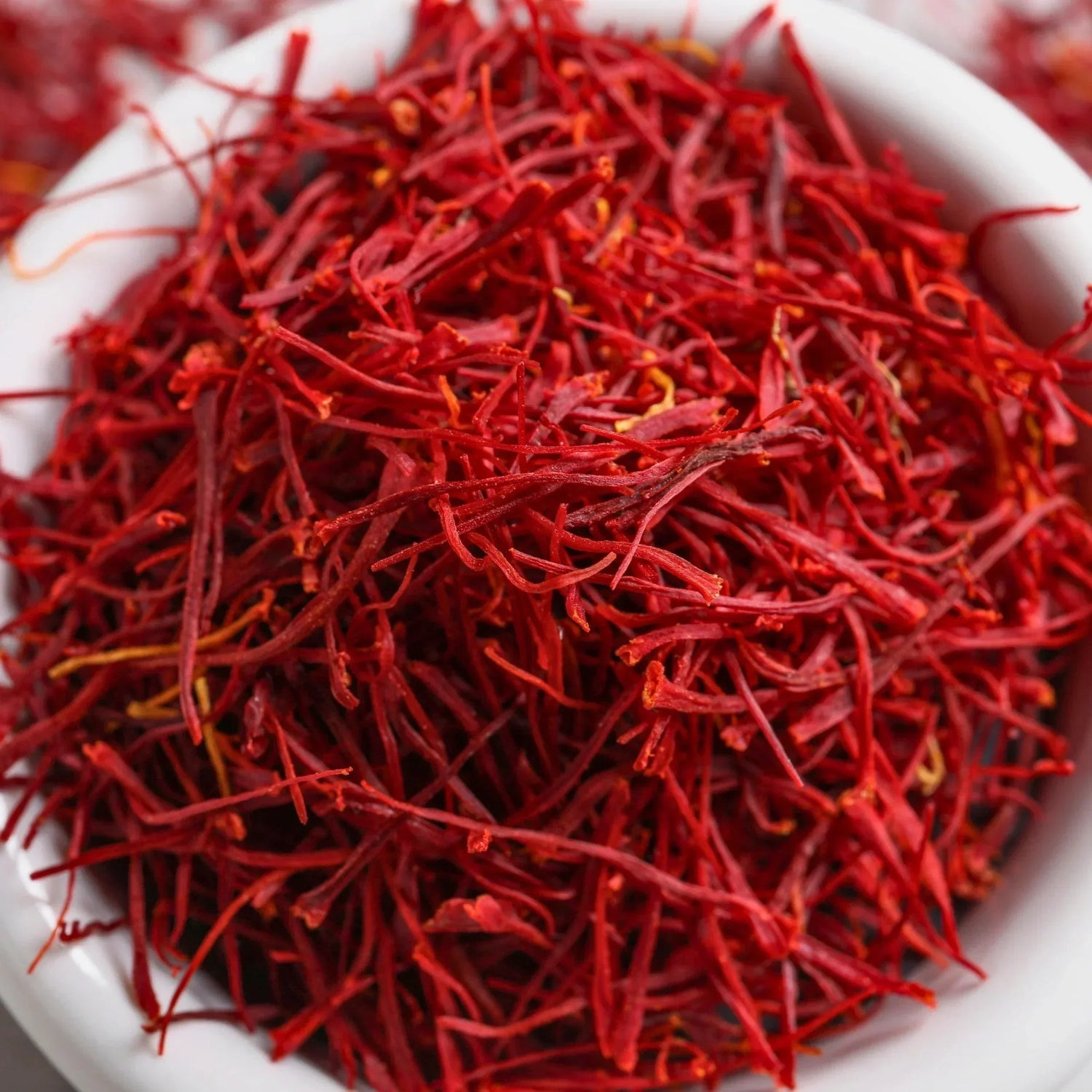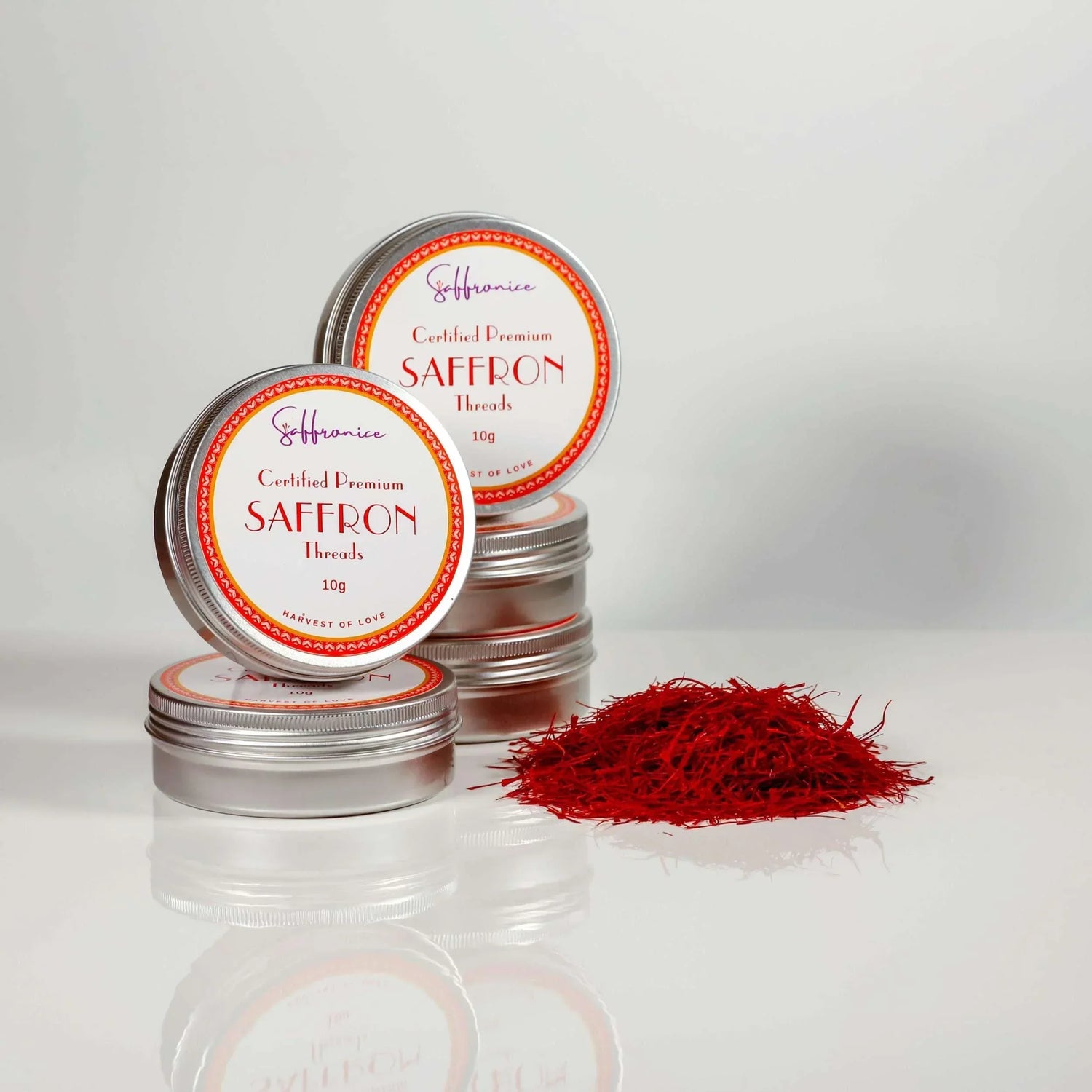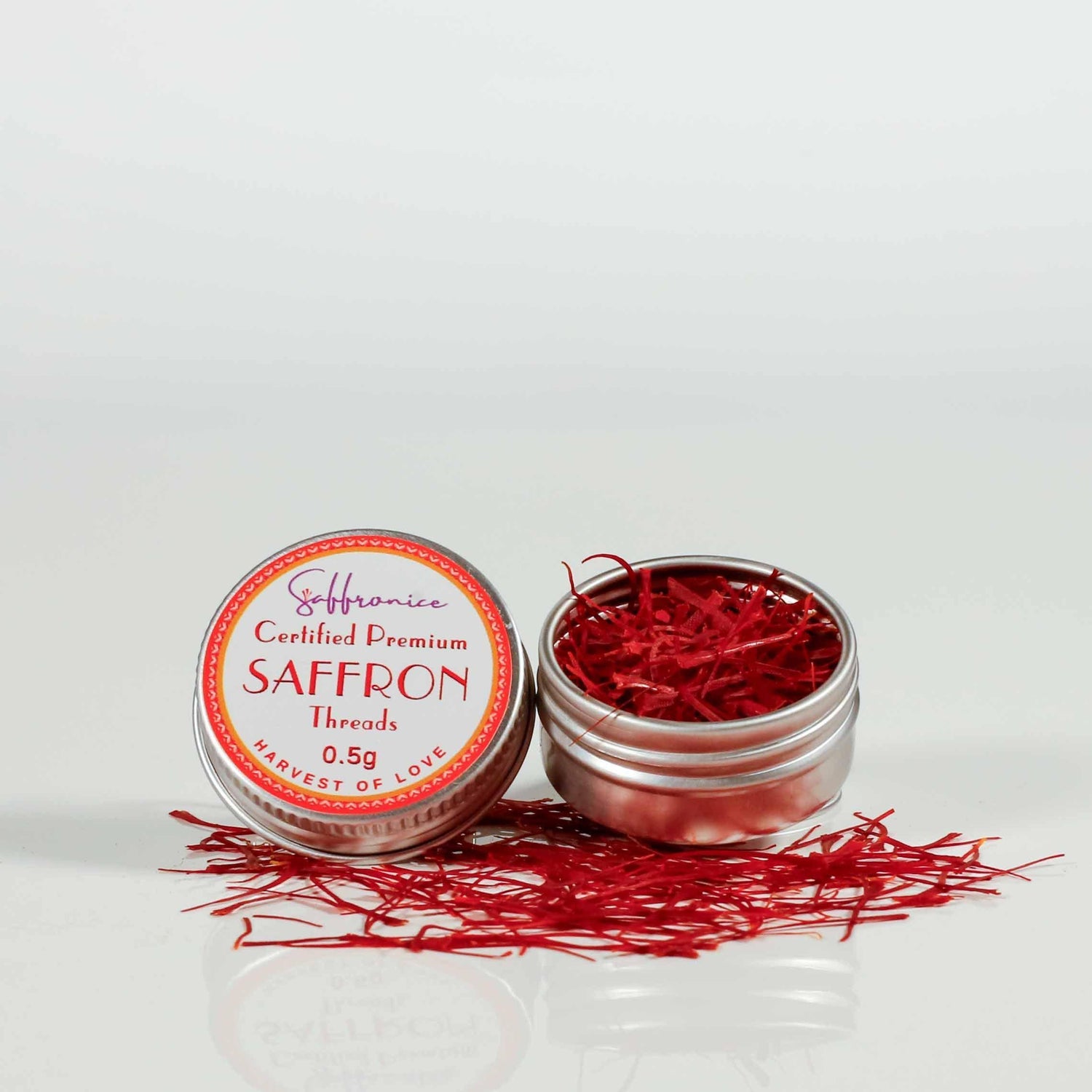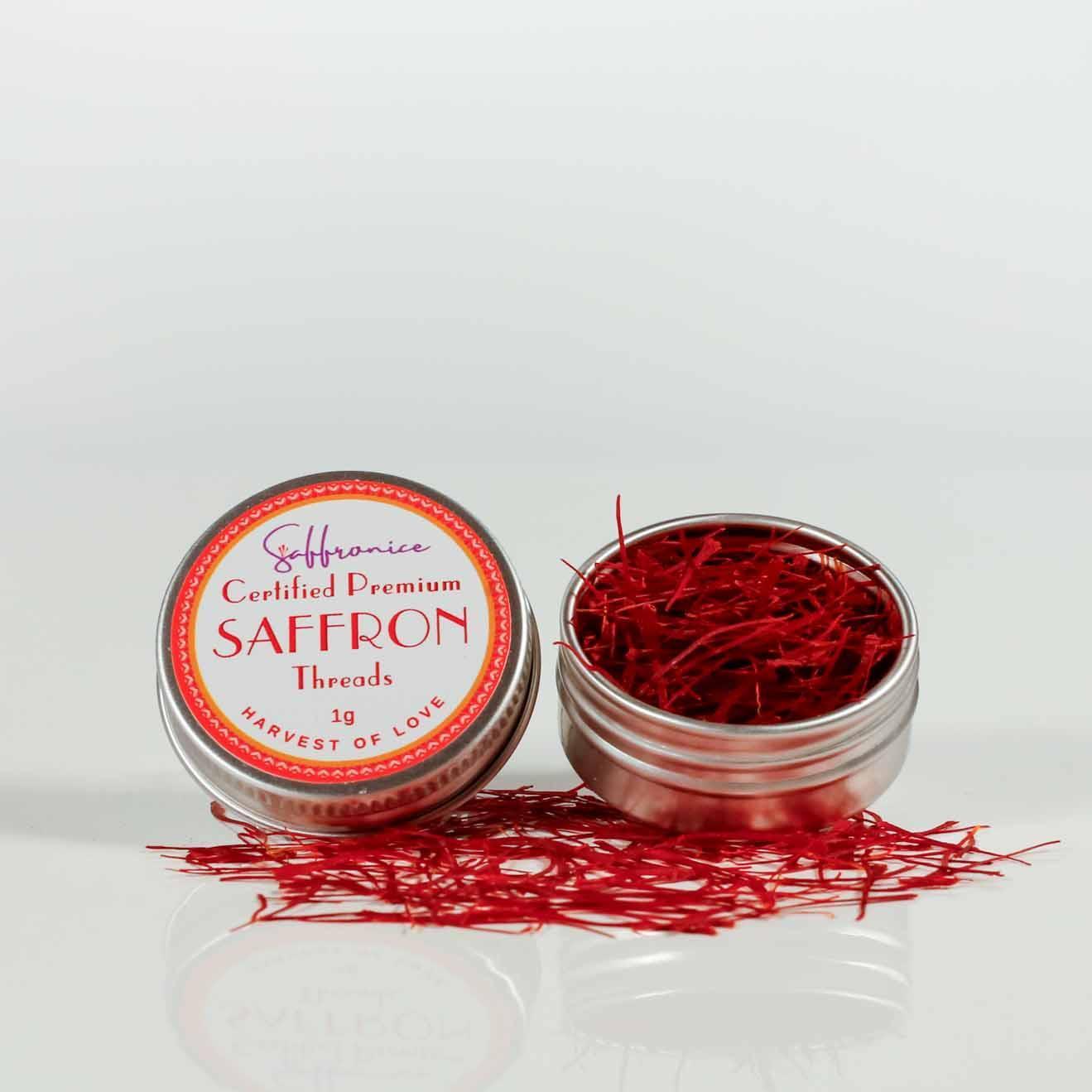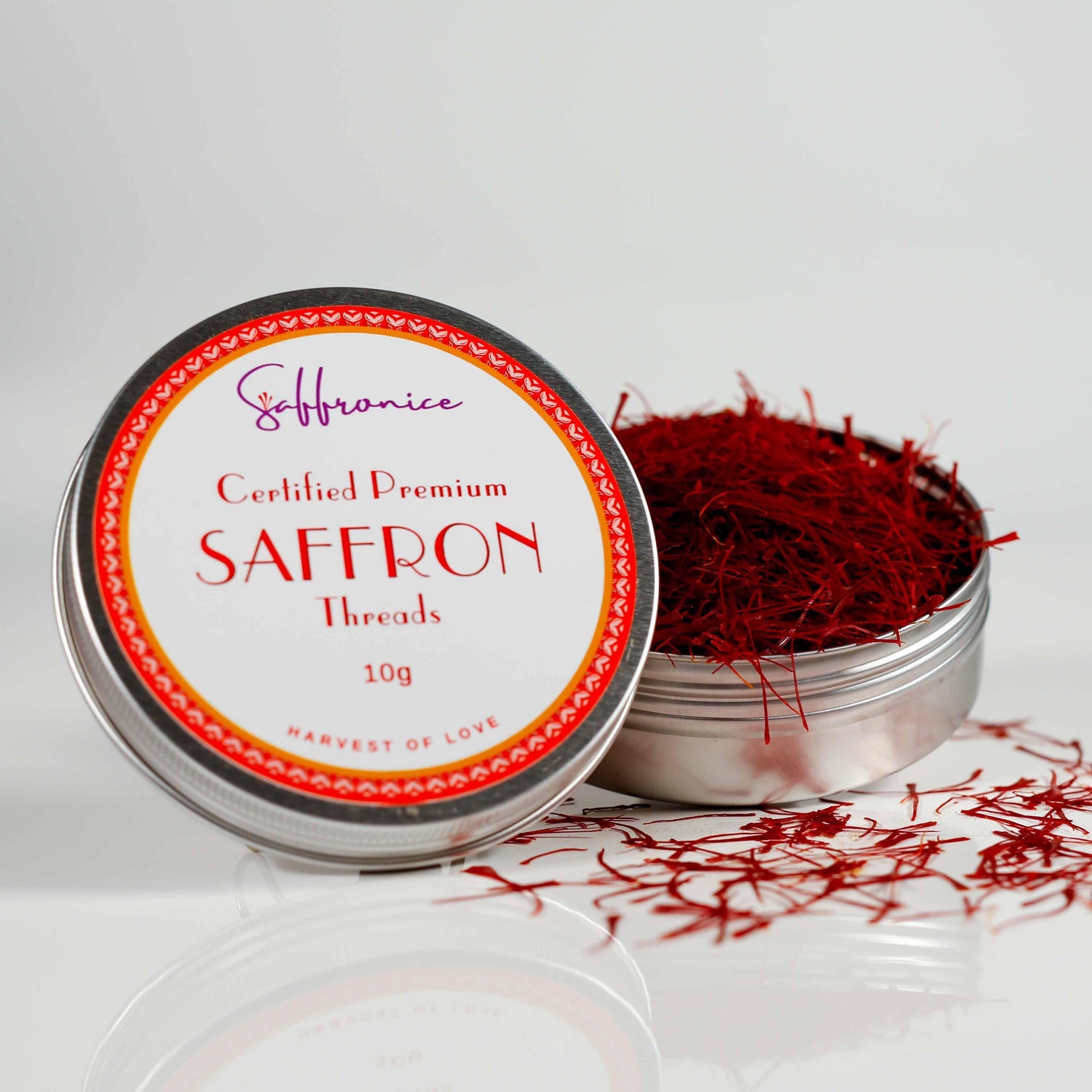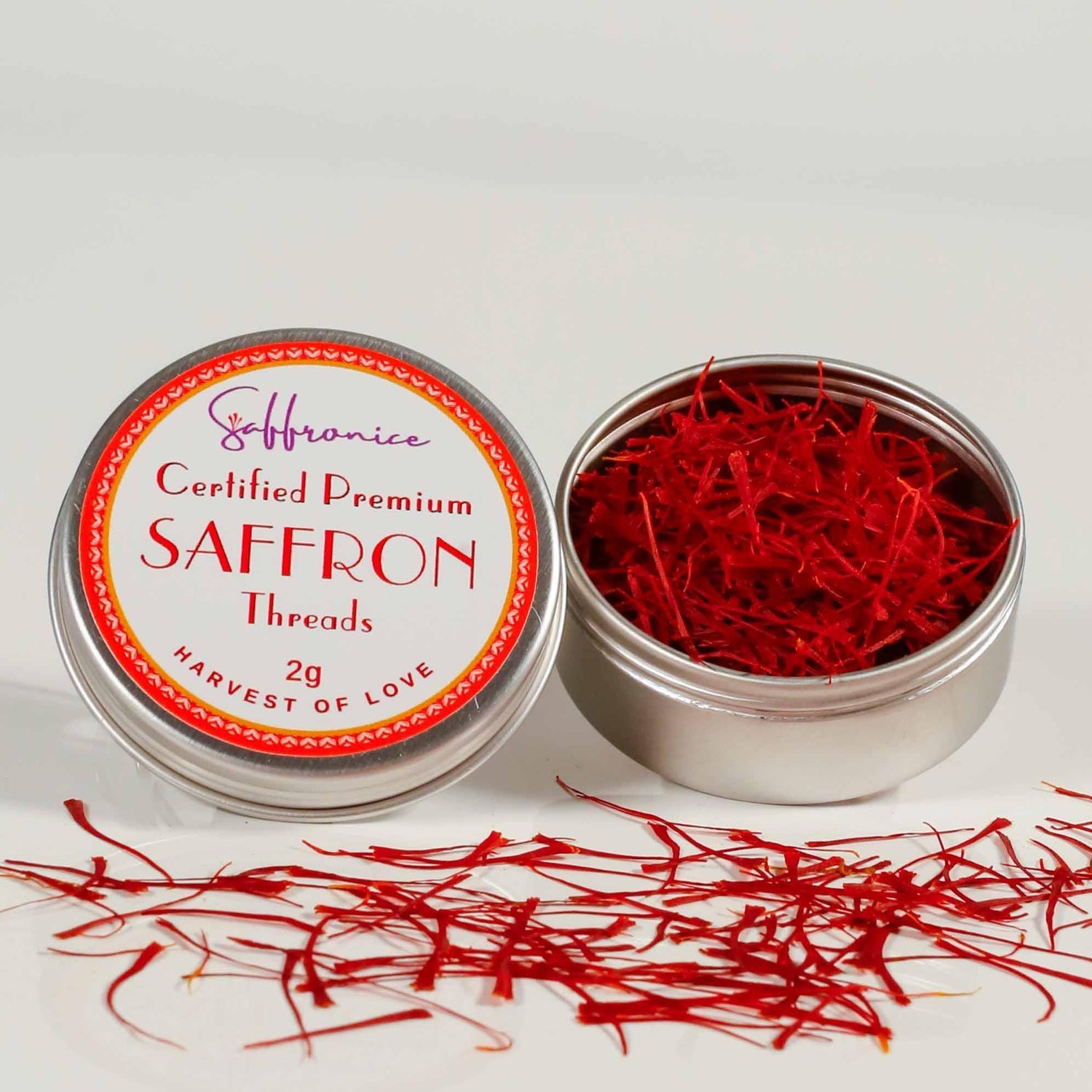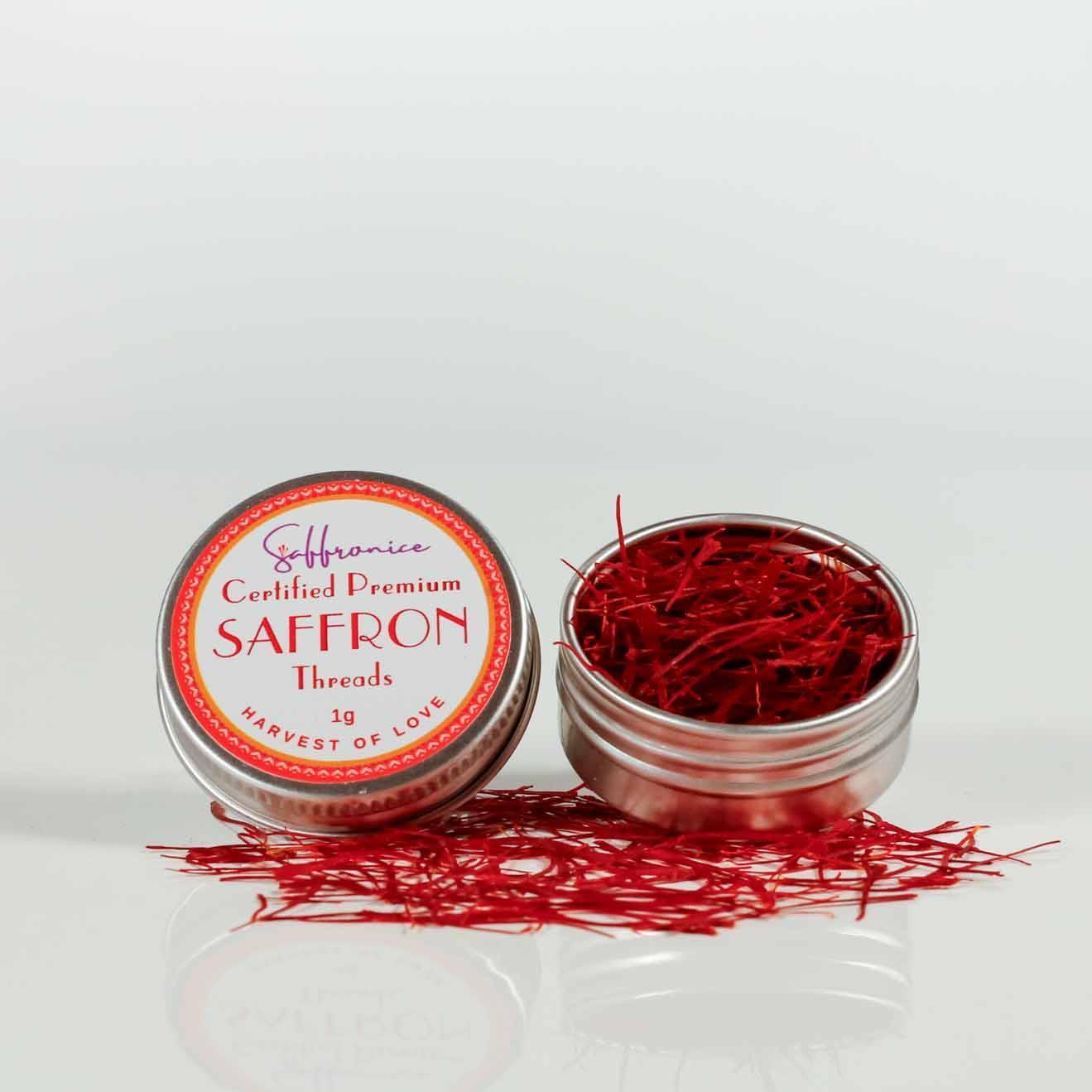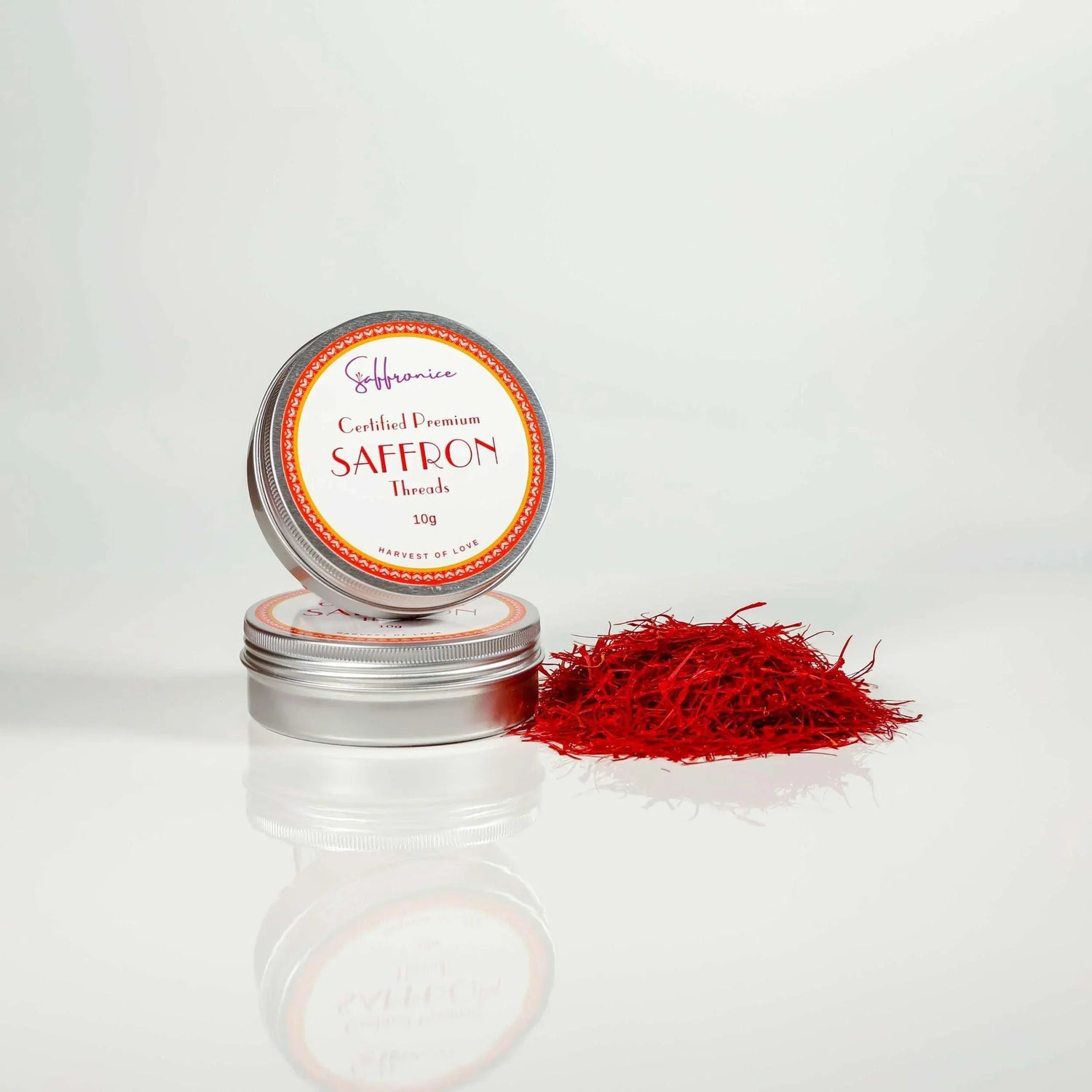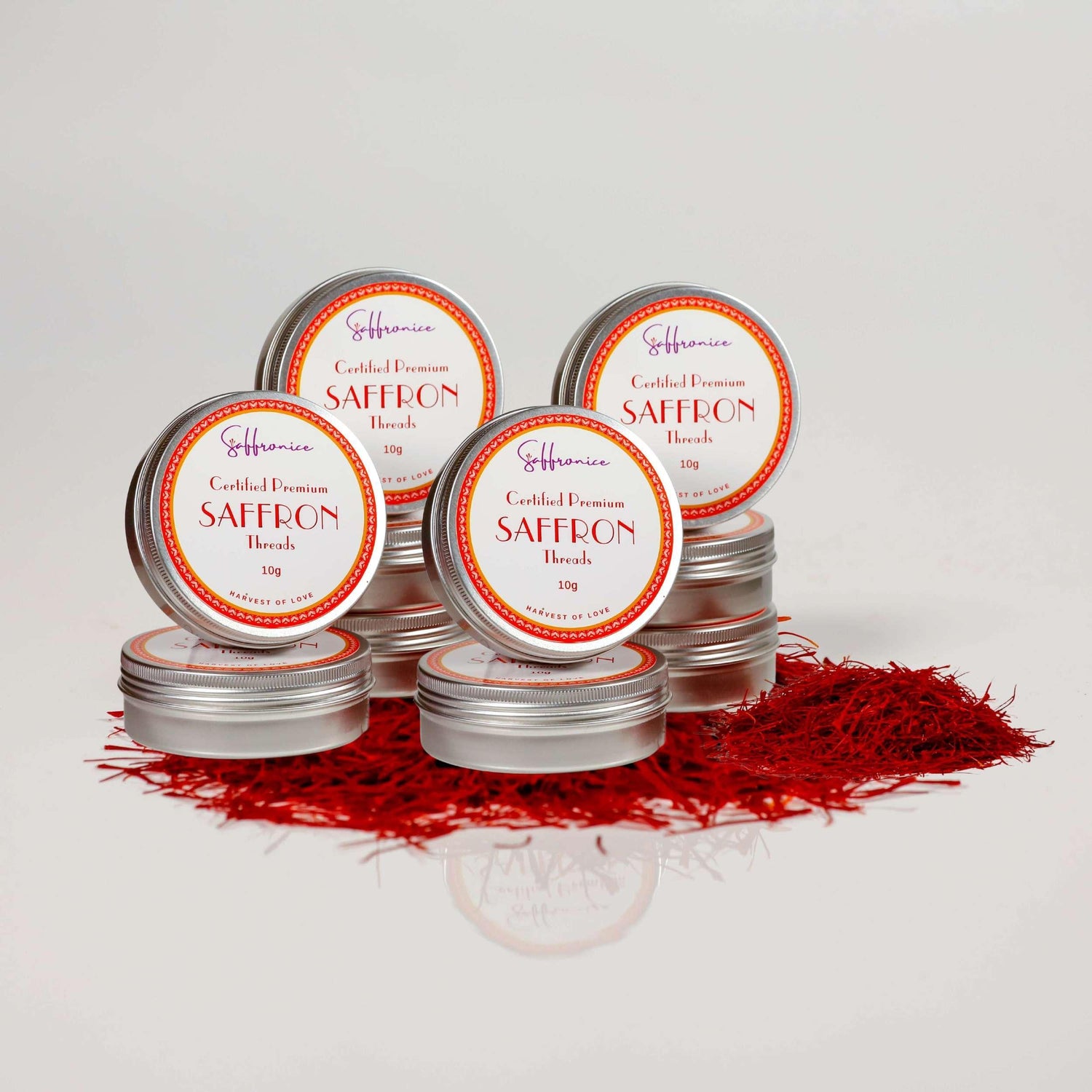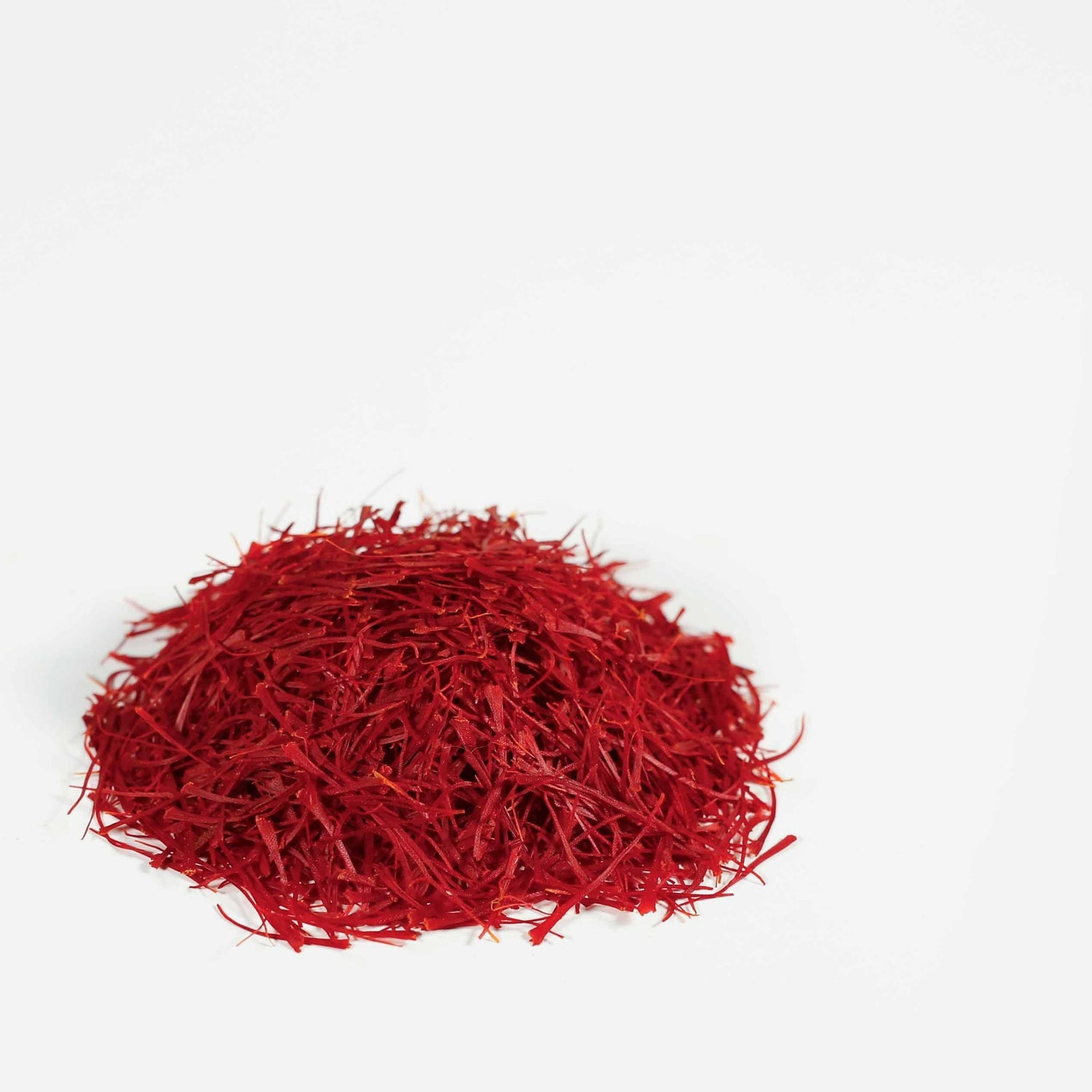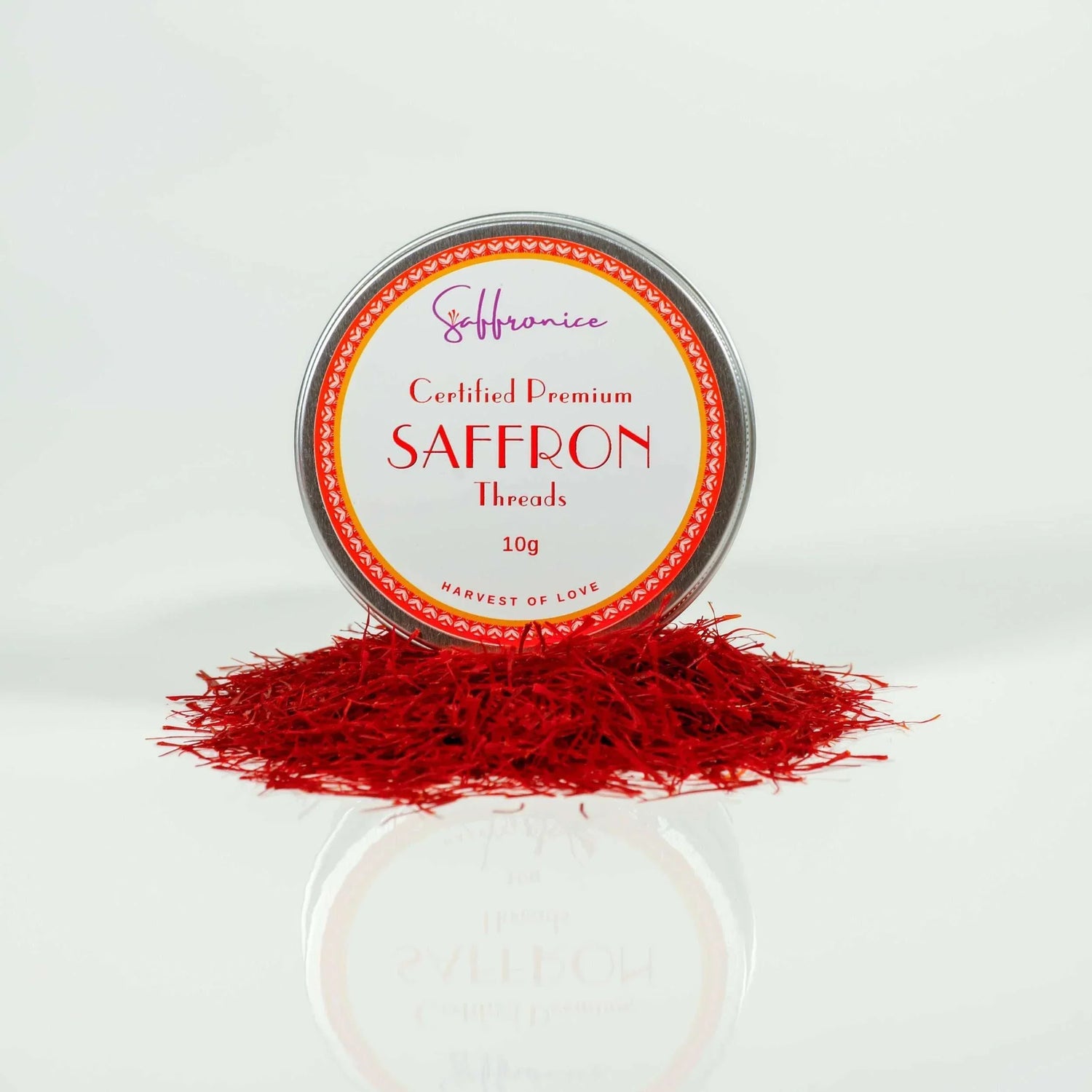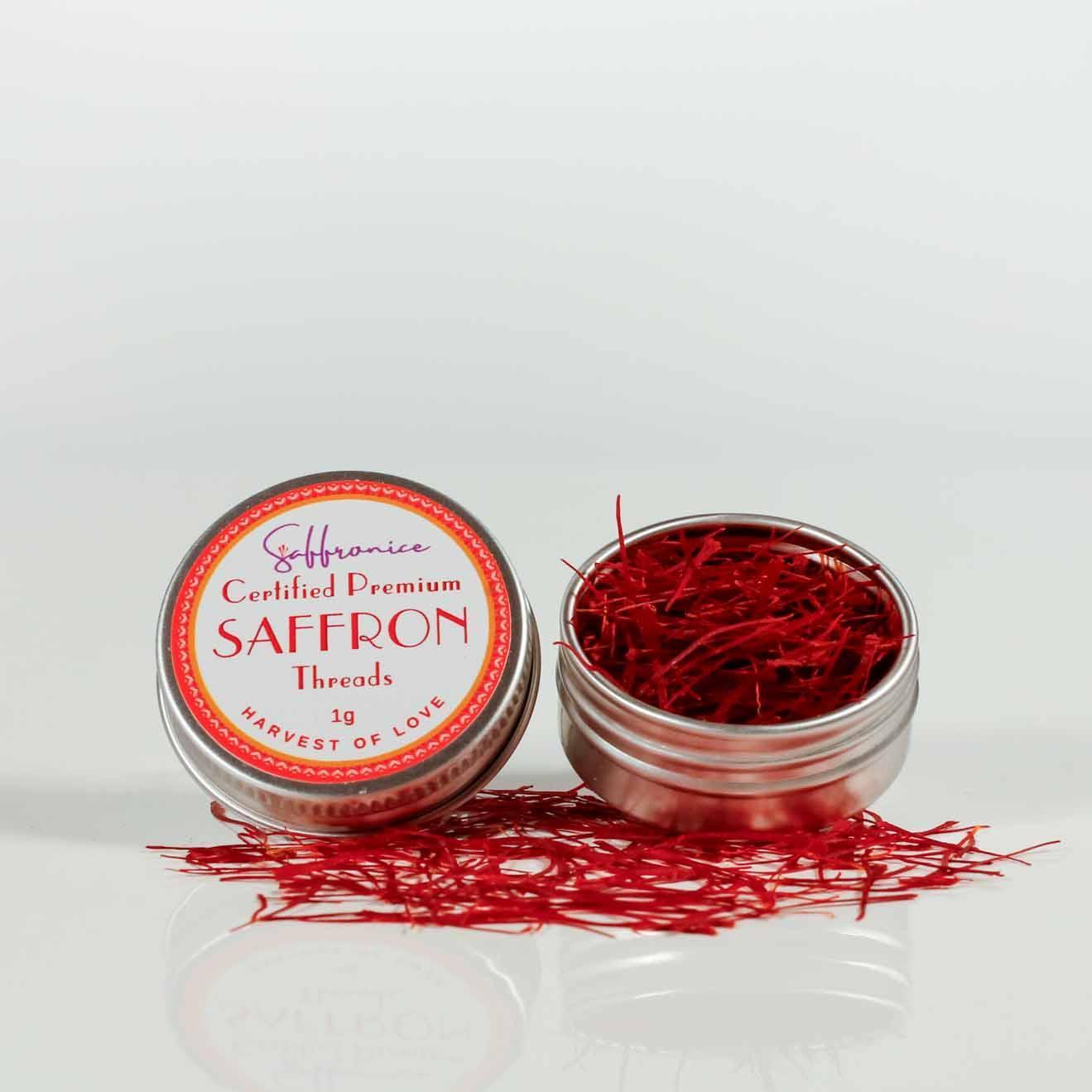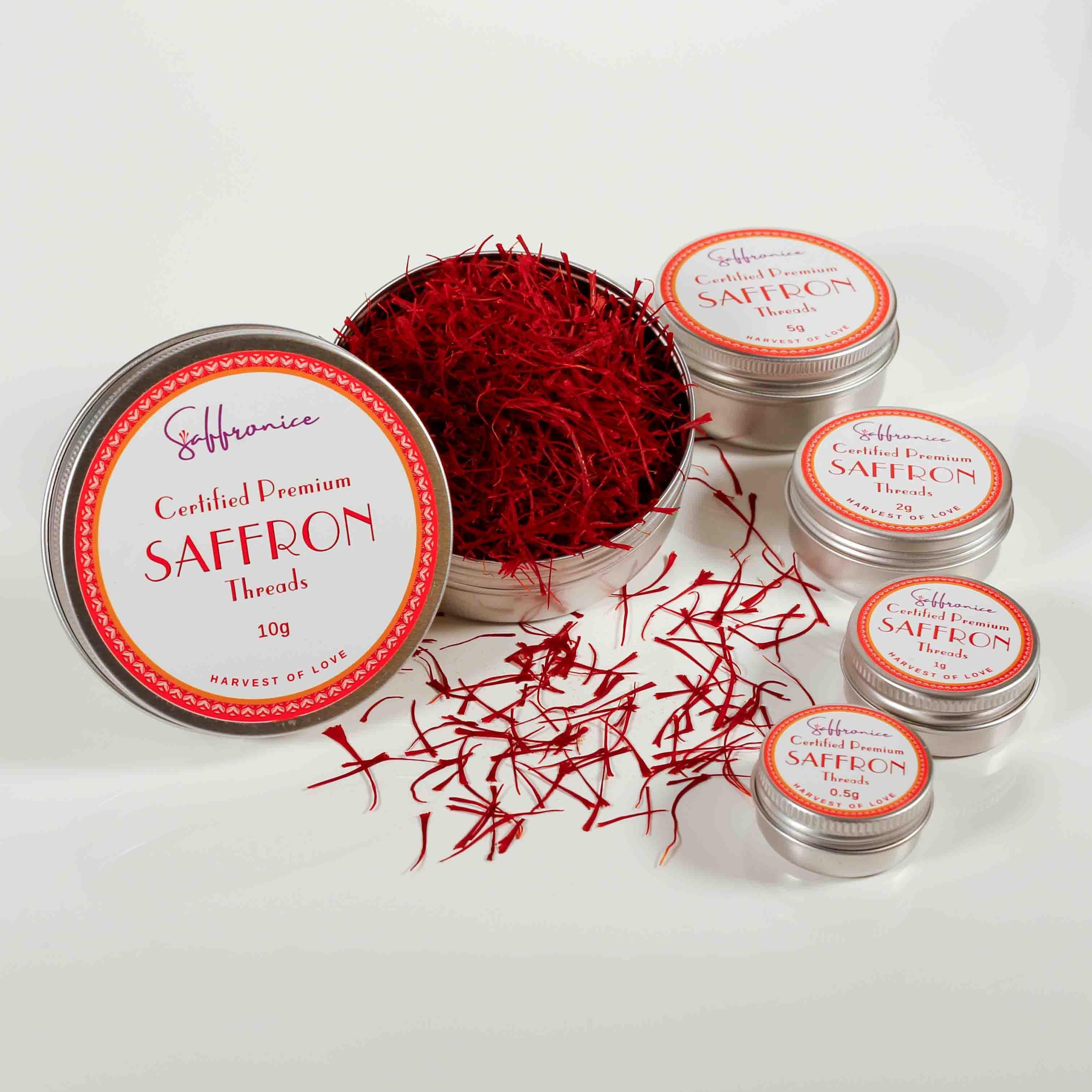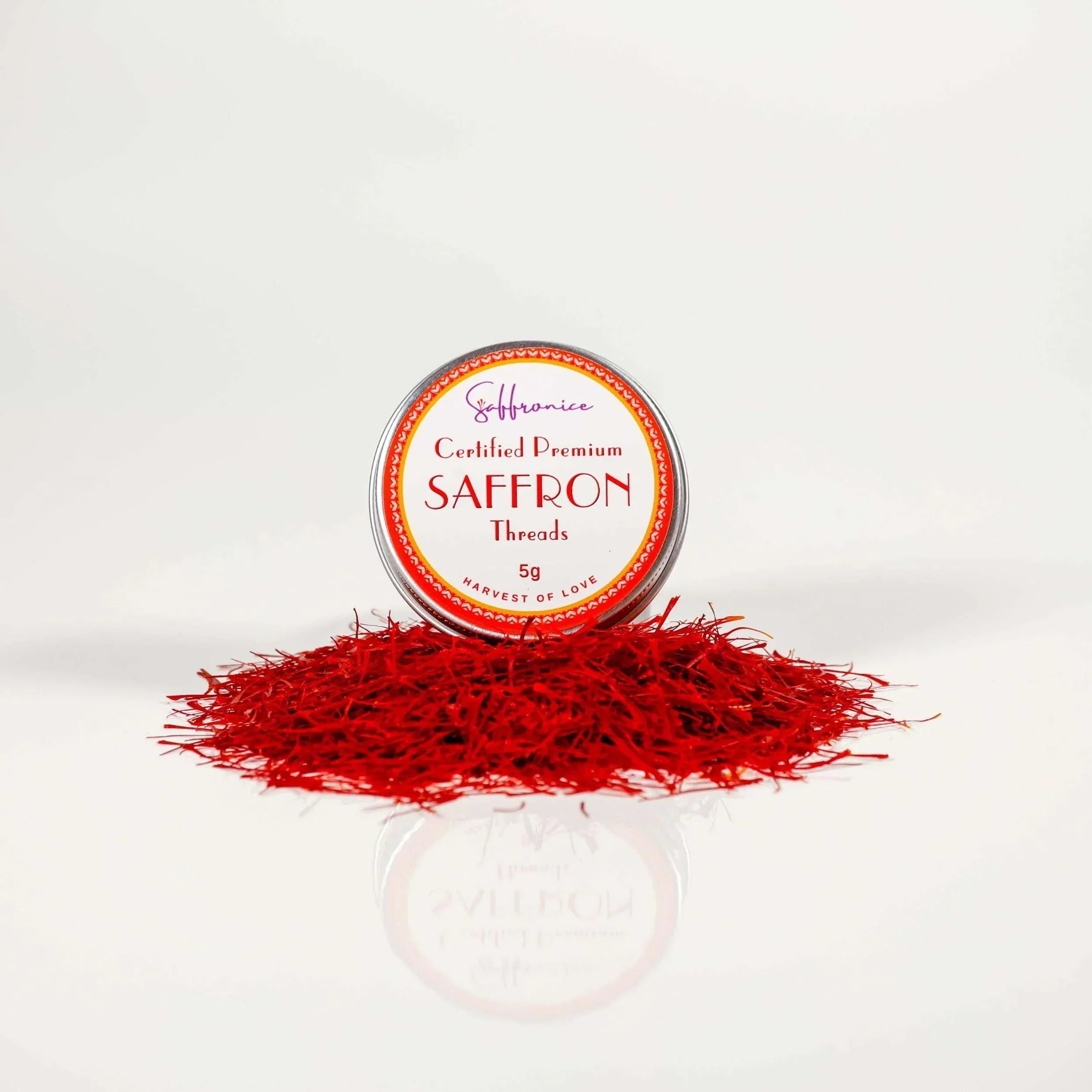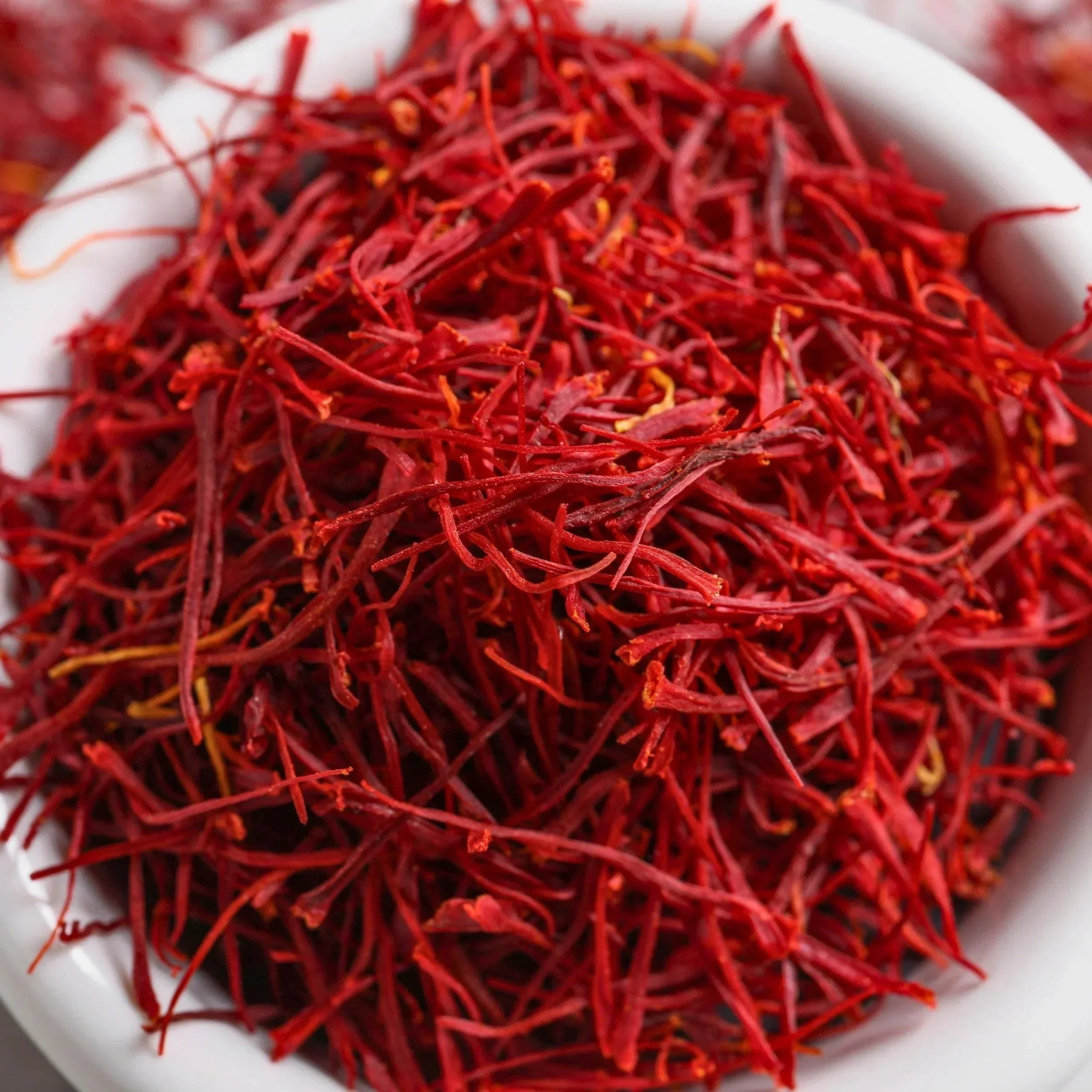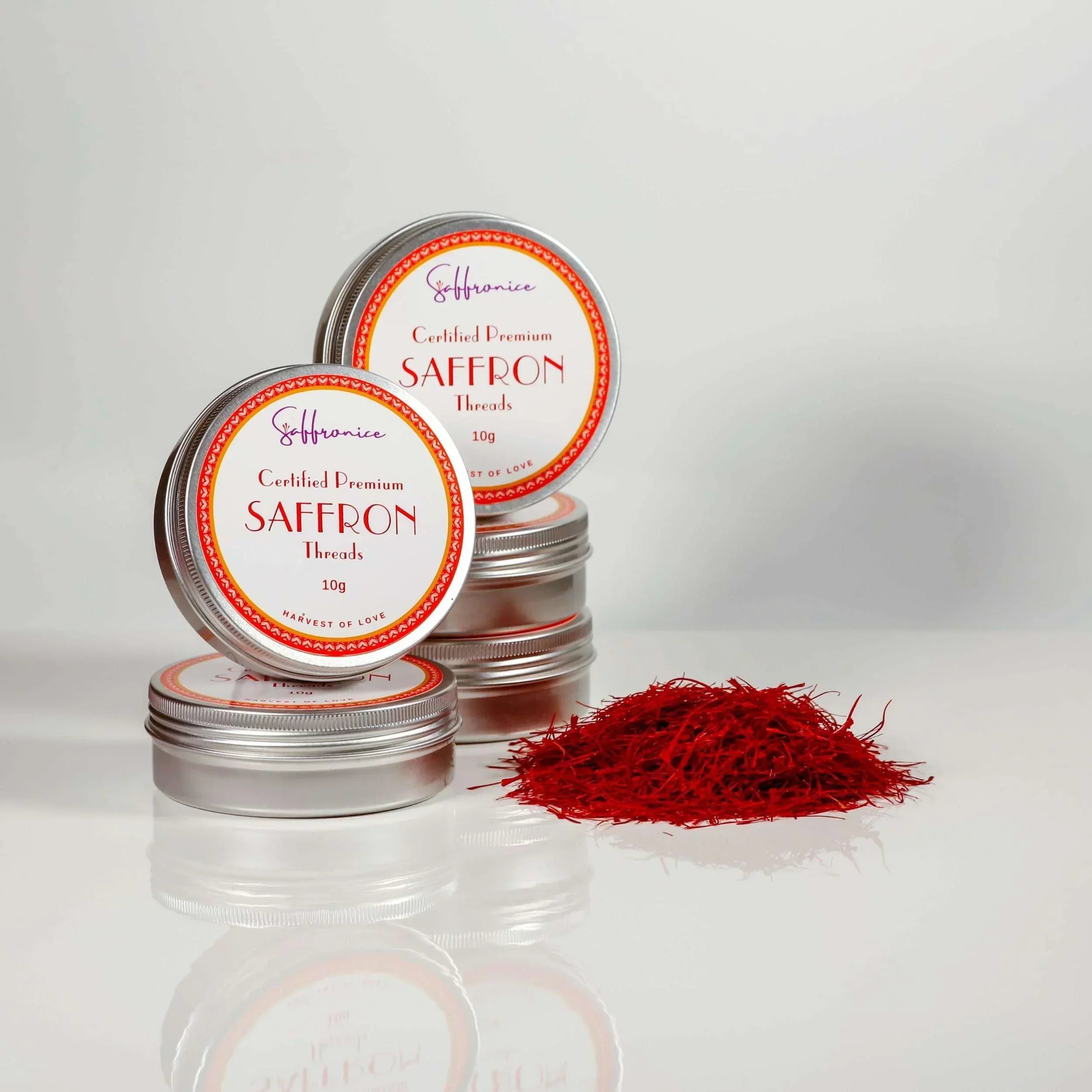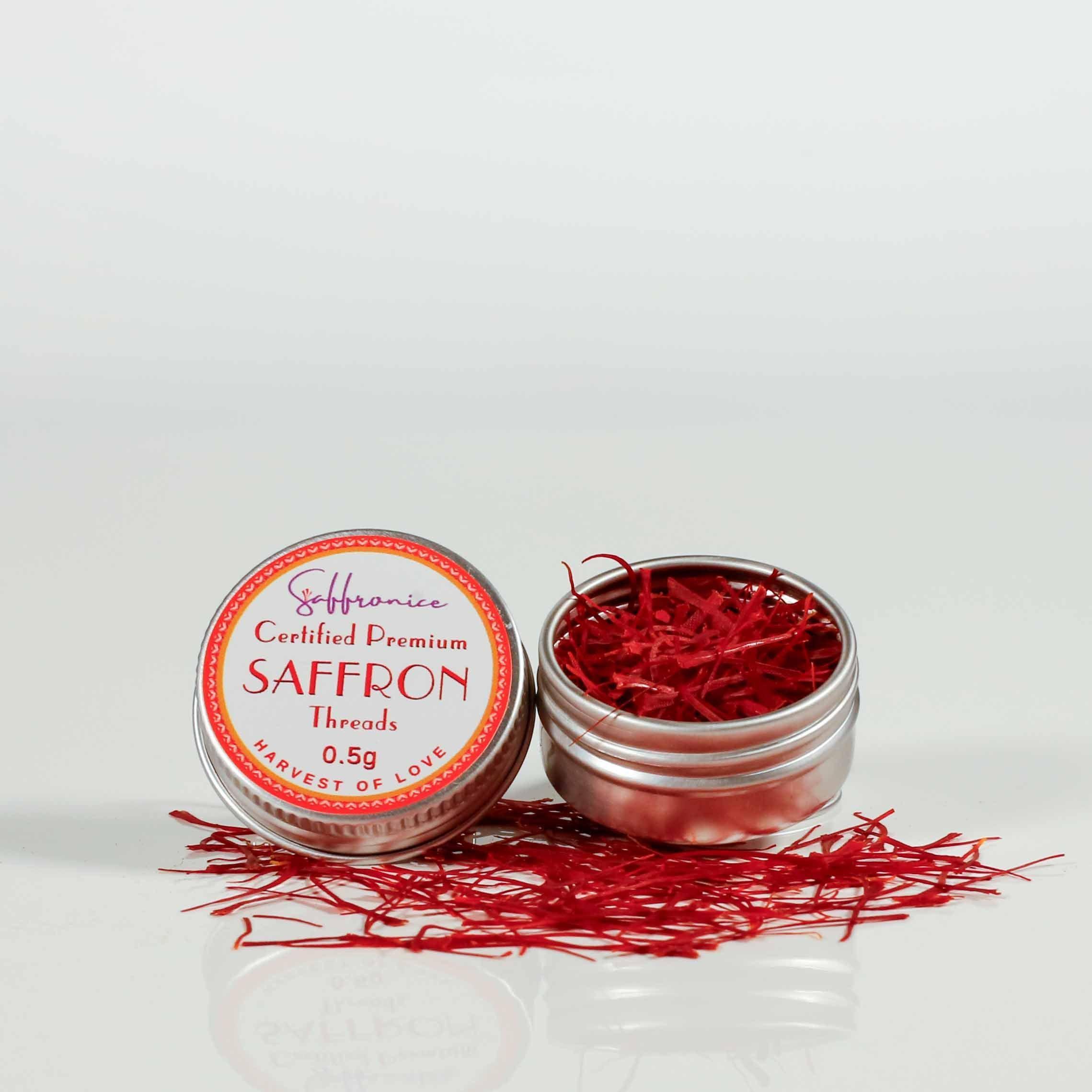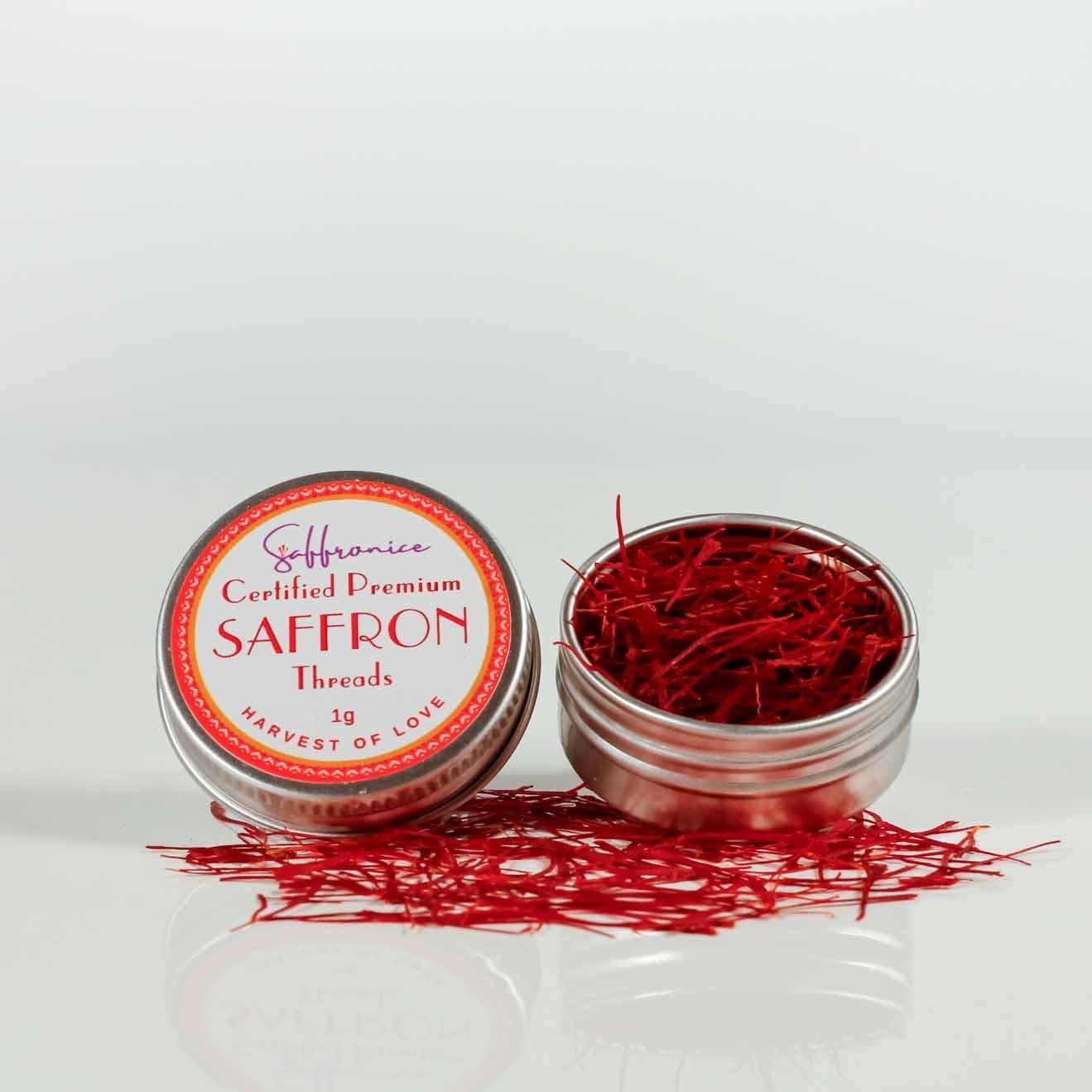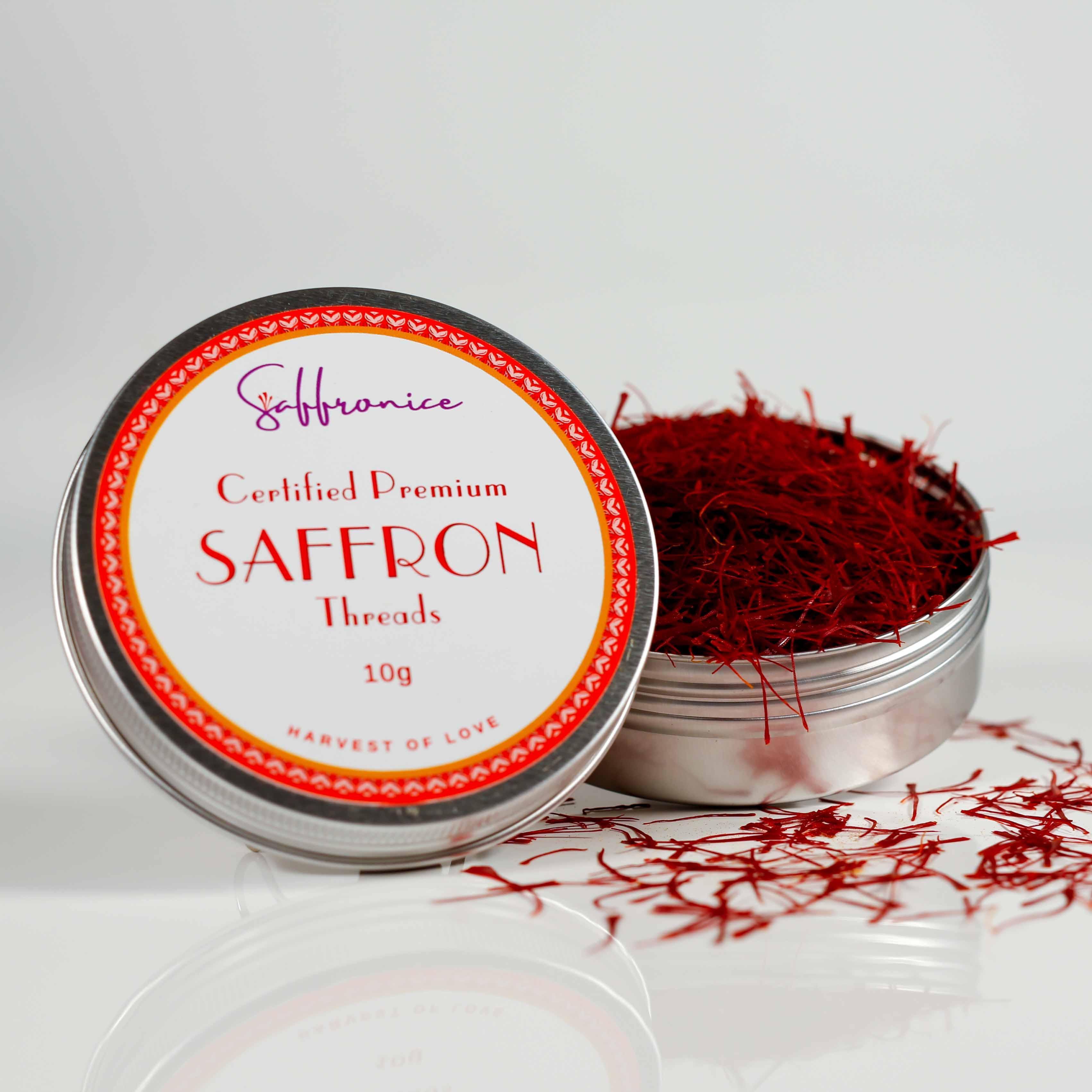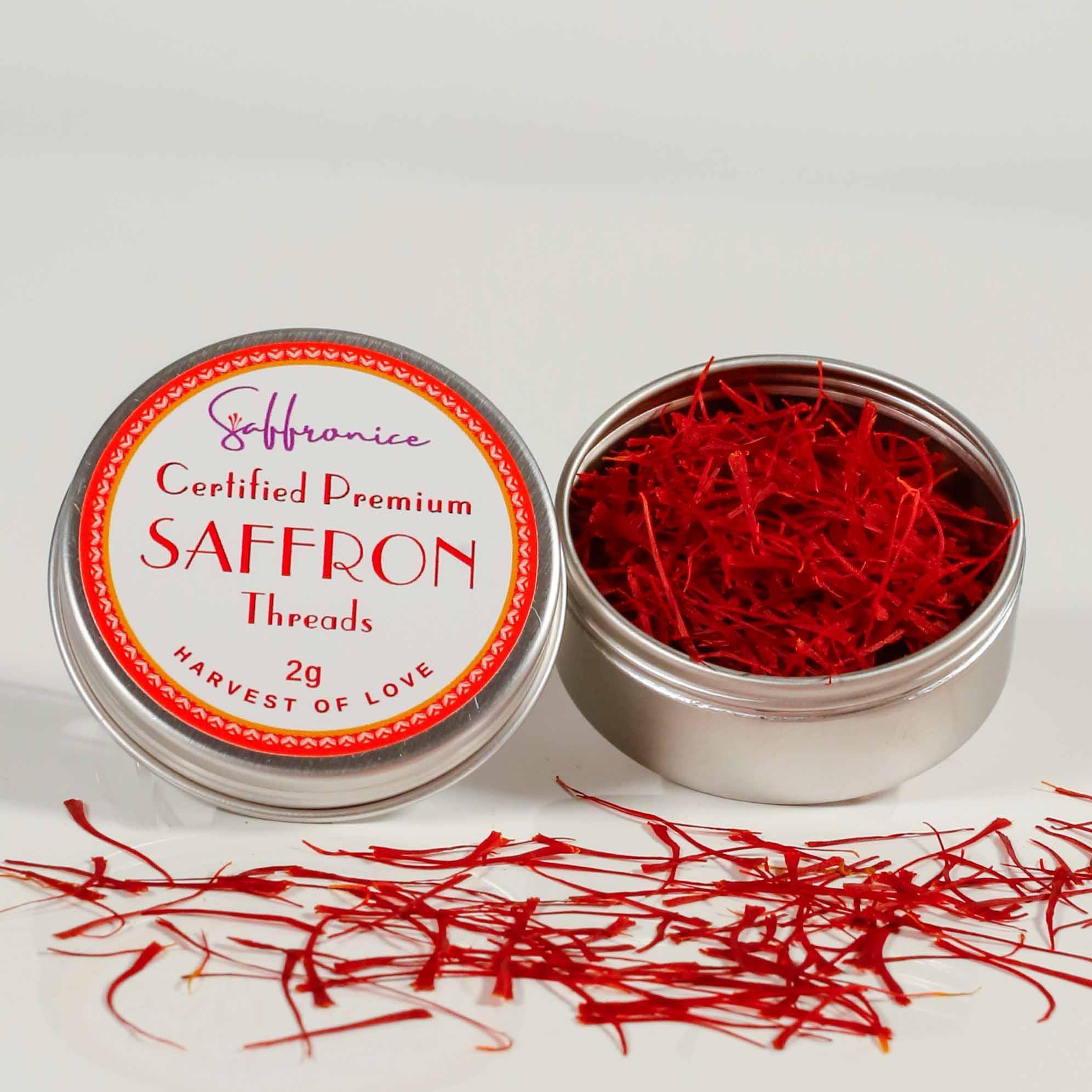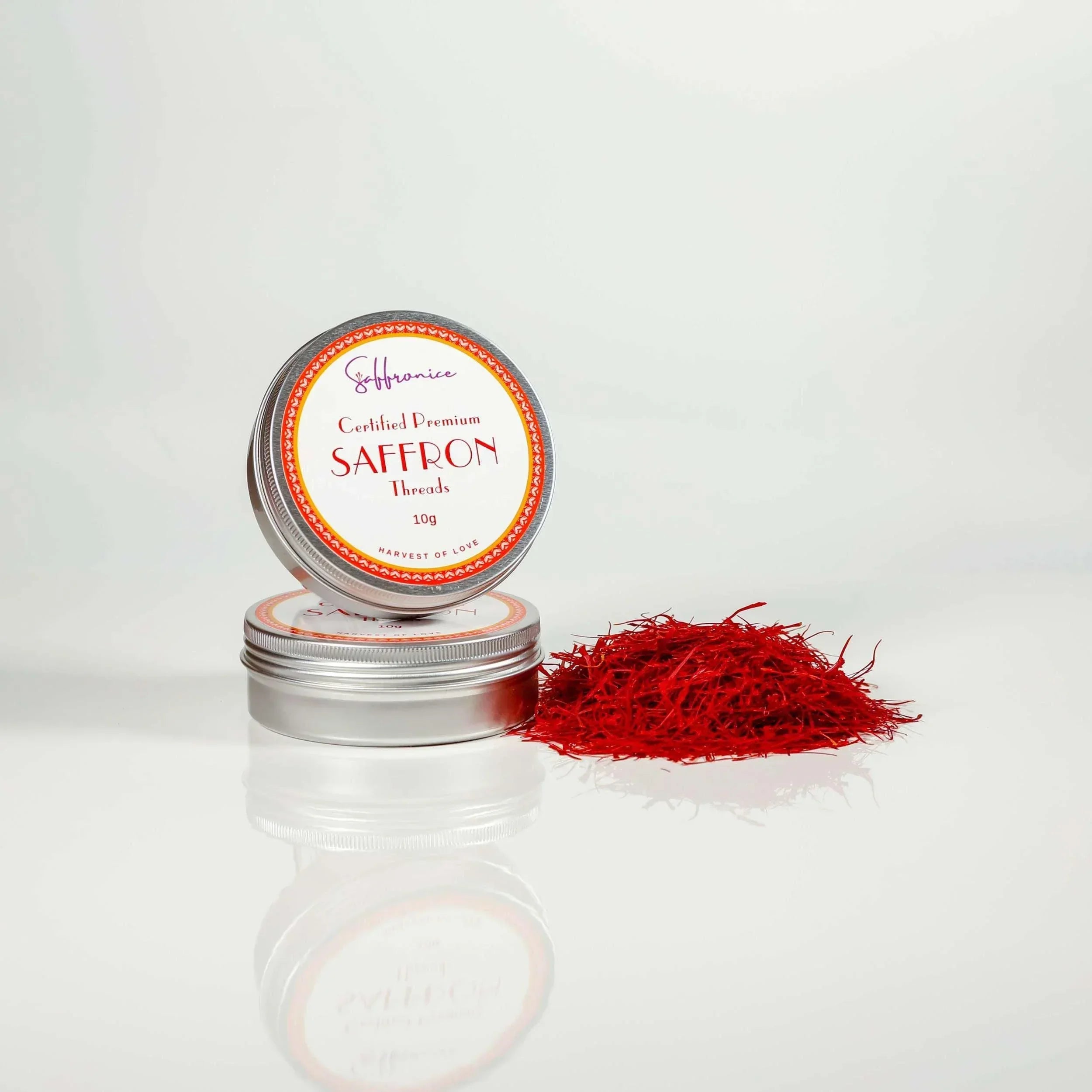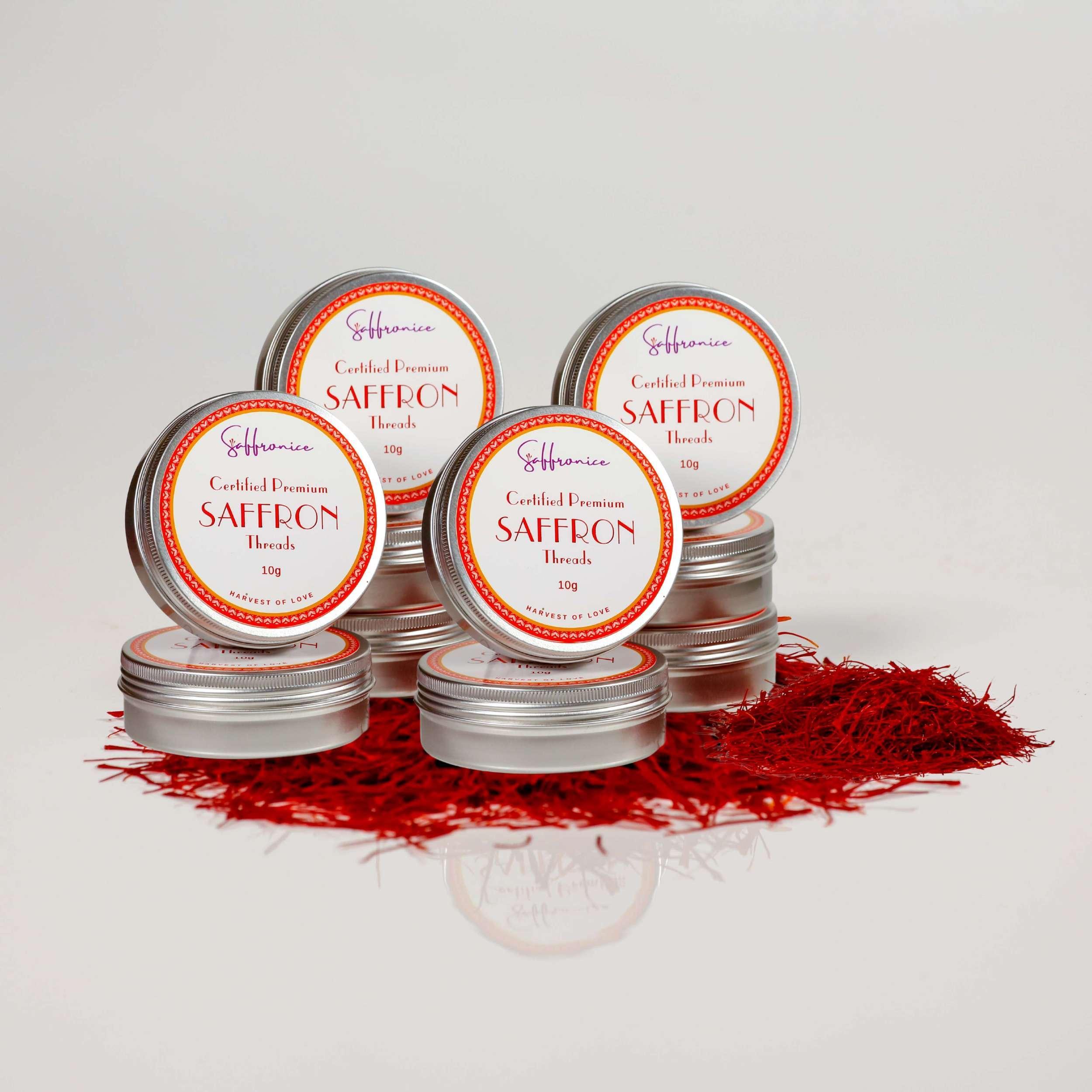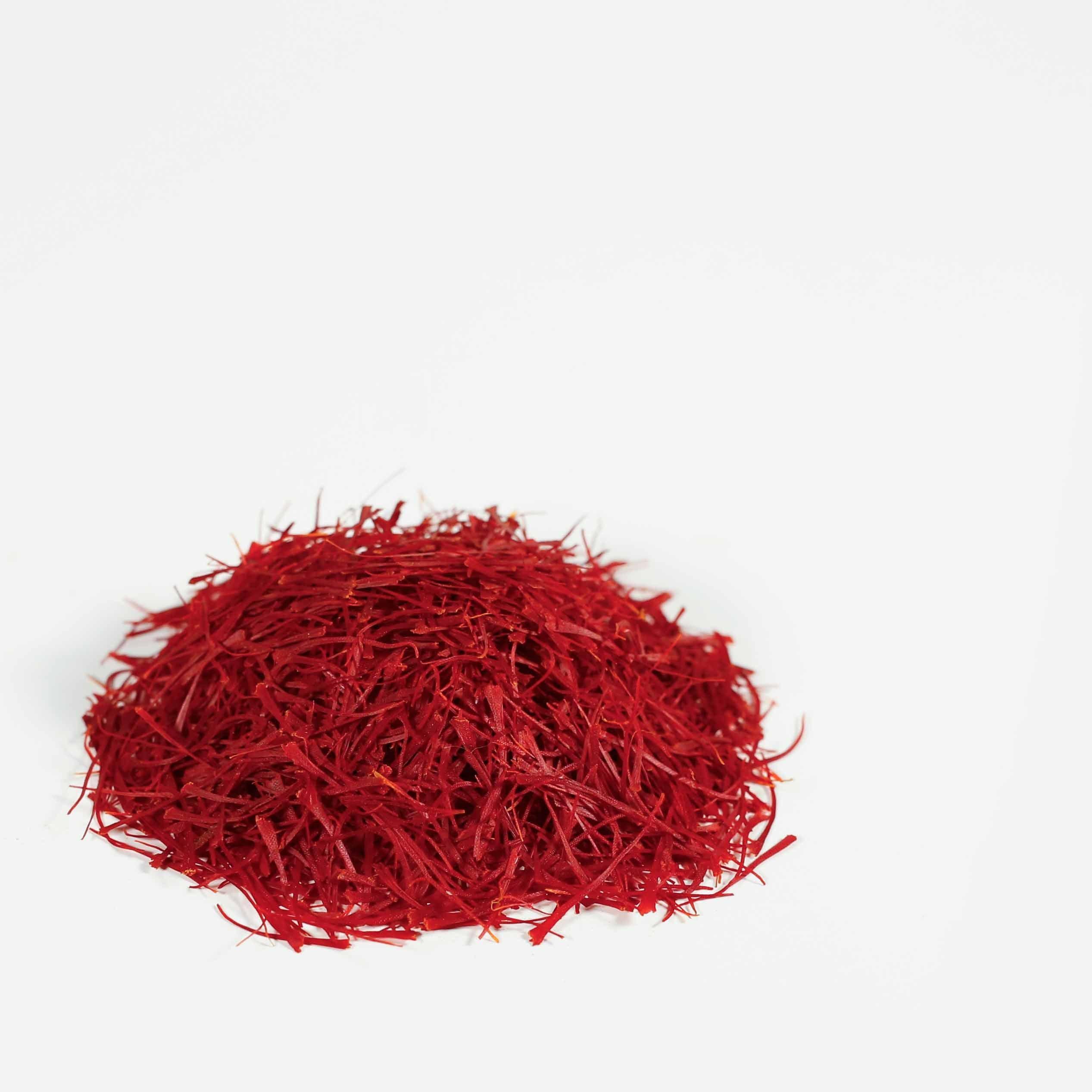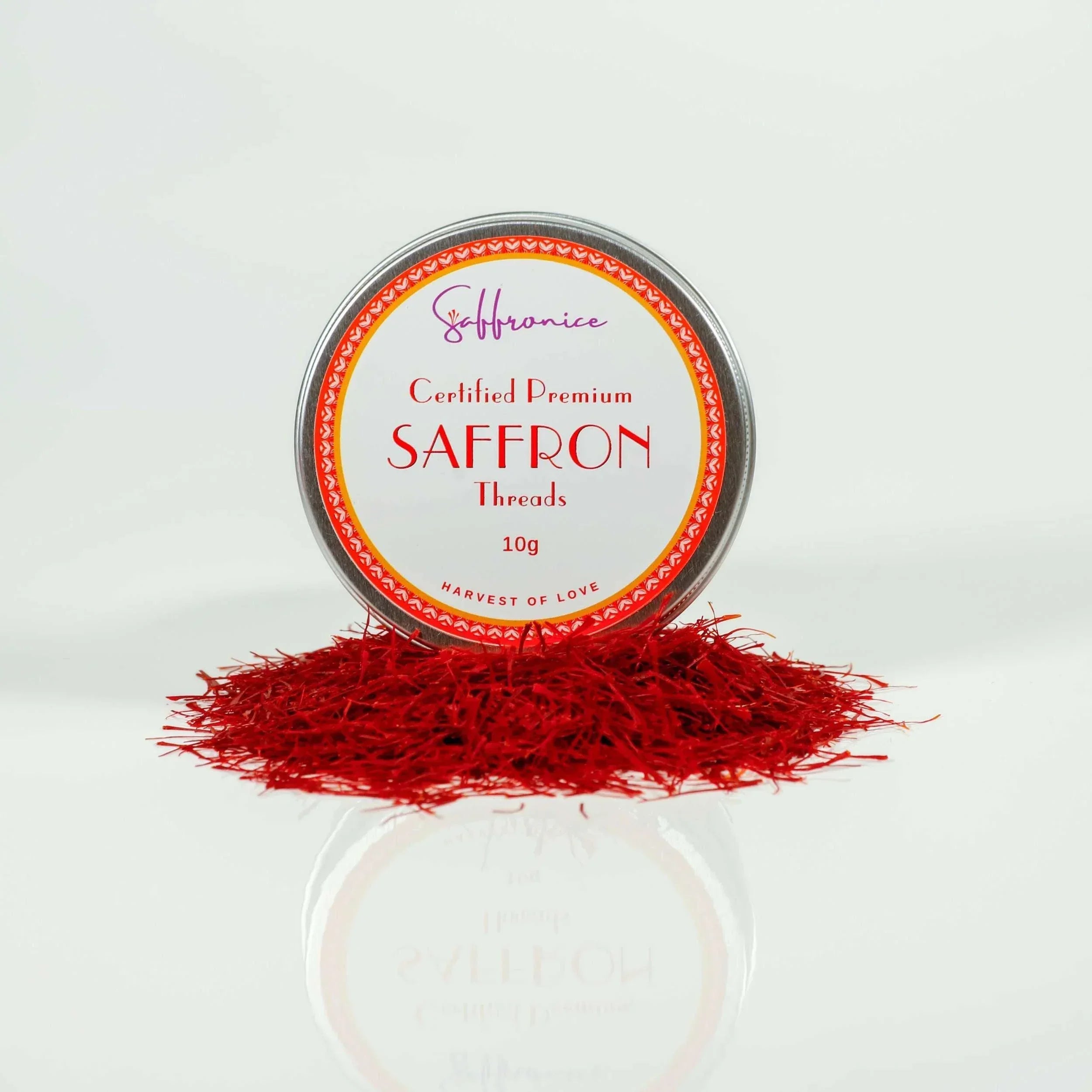Introduction to Saffron and its Health Benefits
Saffron, derived from the flower Crocus sativus, is a highly valued spice known for its distinctive flavor and vibrant color. This golden-hued spice has been utilized for centuries not only as a culinary ingredient but also for its medicinal properties(American Psychological Association(Srivastava et al., 2010).
Historical Significance
Historically, saffron was prized by ancient civilizations, including the Egyptians, Greeks, and Romans, who used it in various aspects of daily life. It was often employed in traditional medicine to treat ailments ranging from digestive issues to mood disorders. The spice contains several bioactive compounds such as crocin, crocetin, safranal, and picrocrocin, which contribute to its myriad health benefits(Srivastava et al., 2010).
Purpose of This Article
This article aims to delve into the diverse saffron health benefits. From its powerful antioxidant properties to its potential role in cognitive function and mood enhancement, we will explore why this ancient spice remains relevant in modern wellness practices. Whether you are new to saffron or looking to deepen your understanding of its health advantages, read on to discover the surprising benefits that can enhance your overall well-being.

Antioxidant Properties
Saffron is known for its high antioxidant content. It contains several bioactive compounds such as crocin, crocetin, safranal, and picrocrocin, which are important in neutralizing free radicals(Srivastava et al., 2010).
Antioxidants in saffron fight against oxidative stress by stabilizing these harmful molecules and preventing damage to cells. This is especially important because free radical damage is associated with many chronic diseases(Srivastava et al., 2010).
- Lowering the Risk of Chronic Diseases: By reducing oxidative stress, saffron may help decrease the risk of conditions like heart disease, diabetes, and certain cancers. These antioxidants work by protecting cells and tissues from the harmful effects of free radicals(Srivastava et al., 2010).
Mood Enhancement and Depression Relief
Research Supporting Saffron's Role
Saffron has been extensively studied for its potential to alleviate symptoms of depression and anxiety. Various clinical trials have demonstrated that saffron supplementation can significantly reduce the severity of depressive symptoms(Hausenblas et al., 2015).
Comparison to Conventional Antidepressants
One fascinating aspect is saffron's efficacy compared to conventional antidepressants. Studies indicate that saffron may be as effective as some prescription medications, such as fluoxetine (Prozac), in improving mood without the side effects commonly associated with these drugs(Hausenblas et al., 2015).
Mechanism of Action
The mechanism behind saffron’s mood-enhancing properties is linked to its effect on serotonin, a neurotransmitter known for regulating mood. Saffron appears to increase serotonin levels by inhibiting its reuptake in the brain, leading to improved emotional well-being and reduced symptoms of depression(Hausenblas et al., 2015).

Cognitive Function, Brain Health, and Neurodegenerative Disorders
Saffron's potential to boost cognitive function and protect brain health is supported by promising evidence:
1. Improved Memory and Cognitive Function
Studies suggest that saffron can enhance memory and learning abilities. The presence of bioactive compounds like crocin may contribute to these cognitive benefits(Akhondzadeh et al., 2010).
2. Alzheimer's and Parkinson's Diseases
Saffron shows promise for individuals with neurodegenerative disorders. Research indicates it might help slow cognitive decline in Alzheimer's patients and improve symptoms in Parkinson's disease sufferers(Akhondzadeh et al., 2010).
3. Neuroprotective Properties
Saffron may protect against beta-amyloid buildup, a hallmark of Alzheimer's disease. This neuroprotective effect could be crucial in preventing or slowing the progression of such disorders.
Incorporating saffron into a balanced diet could thus offer notable advantages for maintaining brain health and cognitive function(Akhondzadeh et al., 2010).
Menstrual Health, PMS Relief, and Weight Management Support
PMS relief is one of the notable benefits of saffron. This spice has been found to alleviate symptoms associated with premenstrual syndrome (PMS) such as mood swings, irritability, and physical discomfort. Scientific studies highlight its effectiveness in treating PMS symptoms by impacting serotonin levels, which can help stabilize mood(Gout et al., 2010).
Can Saffron Boost Your Mood?
Yes! Research suggests that saffron can significantly improve mood during PMS, making those difficult days more manageable(Gout et al., 2010).
Saffron for Weight Loss
Studies also indicate that saffron may support weight management efforts. By suppressing appetite and reducing snacking behavior, it can aid in weight loss(Gout et al., 2010). This makes it a valuable addition to any diet plan focused on maintaining a healthy weight.
Heart Health Benefits, Sexual Health Enhancement, Eye Health Protection, and Anti-Cancer Effects
Heart Health Benefits
Saffron has anti-inflammatory effects that can support cardiovascular health. By reducing inflammation, saffron helps protect blood vessels and heart tissues. Additionally, it has cholesterol-lowering properties that can decrease LDL cholesterol levels, a known risk factor for heart disease(Srivastava et al., 2010).
Sexual Health Enhancement
Traditionally recognized as an aphrodisiac, saffron has been used to enhance libido and sexual function. Modern studies back this up, showing its effectiveness in improving sexual desire and performance in both men and women(Srivastava et al., 2010).
Eye Health Protection
Saffron’s benefits extend to vision health. It may improve eyesight by protecting retinal cells from damage associated with age-related macular degeneration (AMD). The spice contains compounds that can strengthen the eye's structure and function(Srivastava et al., 2010).
Anti-Cancer Effects
Preliminary research indicates that saffron may possess anticancer properties. Studies suggest that compounds in saffron can selectively kill cancer cells or inhibit tumor growth without harming normal cells(Srivastava et al., 2010). This highlights saffron's potential role in cancer prevention and treatment.
For those interested in adding saffron to their diet, understanding how to grow saffron bulbs might be beneficial. You can explore this complete guide on growing saffron bulbs for more information.
How to Incorporate Saffron into Your Daily Routine for Maximum Benefits?
Incorporating saffron into your daily routine can be simple and rewarding. To enjoy saffron's health benefits without experiencing any side effects or toxicity, it's important to adhere to recommended dosages:
- General Wellness: 30 mg per day
- Mood Enhancement: 15-30 mg per day
- Cognitive Function: 30 mg per day
- PMS Relief: 15 mg twice daily
You can add saffron to your diet in various ways:
- Cooking: Use saffron threads in dishes like rice, soups, and stews.
- Tea: Steep a few threads in hot water for a soothing tea.
- Supplements: Consider saffron capsules if you prefer a more convenient option.
Feel free to get creative with how you incorporate this vibrant spice into your meals!
Precautions and Potential Side Effects Associated with Saffron Consumption
When considering saffron supplements or extracts, it's essential to be aware of potential saffron safety precautions. Here are some key points to keep in mind:
- Allergic Reactions: Some individuals may experience allergic reactions to saffron. Symptoms can range from mild skin rashes to more severe respiratory issues.
- Sensitivities: Those with sensitivities to other spices may also react to saffron. It's advisable to start with a small dose to gauge your body's response.
- Pregnancy and Breastfeeding: High doses of saffron might not be safe during pregnancy or breastfeeding. Consult a healthcare provider before use.
- Medication Interactions: Saffron could interact with certain medications, such as blood pressure or antidepressant drugs. Always check with a healthcare professional.
Ensuring you're aware of these potential risks can help you make informed choices about incorporating saffron into your health regimen.
Conclusion: Embracing the Power of Saffron for Optimal Well-being
Incorporating saffron into your diet can unlock a host of health benefits. From its powerful antioxidant properties to its potential in mood enhancement, cognitive support, and beyond, saffron stands out as a versatile addition to any wellness routine.
Consider adding this vibrant spice to your meals or as a supplement to experience these saffron health benefits firsthand. Embrace the ancient wisdom and modern science behind saffron's medicinal properties for your optimal well-being(Srivastava et al., 2010).
FAQs (Frequently Asked Questions)
What are the health benefits of saffron?
Saffron is known for its rich antioxidant content, which helps combat oxidative stress and may reduce the risk of chronic diseases. Additionally, it has mood-enhancing properties that can alleviate symptoms of depression and anxiety, improve cognitive function, support menstrual health, and provide benefits for heart health, sexual health, eye protection, and potential anti-cancer effects.
How does saffron help with mood enhancement and depression relief?
Research supports saffron's role in alleviating depression and anxiety by influencing serotonin levels in the brain. Its neuroprotective effects may also contribute to improved mood and a reduction in symptoms associated with mood disorders.
Can saffron improve cognitive function in individuals with neurodegenerative disorders?
Yes, studies suggest that saffron may improve memory and cognitive function, particularly in individuals with Alzheimer's and Parkinson's diseases. Its neuroprotective properties help combat beta-amyloid buildup, which is linked to cognitive decline.
What is the recommended dosage of saffron for health benefits?
The recommended dosage of saffron for experiencing health benefits typically ranges from 30 mg to 150 mg per day. It is important to adhere to this range to avoid potential side effects or toxicity concerns.
Are there any precautions or side effects associated with saffron consumption?
While saffron is generally safe for most individuals when used appropriately, some people may experience allergic reactions or sensitivities. It is advisable to consult a healthcare professional before starting saffron supplements or extracts.
How can I incorporate saffron into my daily routine?
Saffron can be easily incorporated into your diet by adding it to dishes such as rice, soups, or stews. You can also brew saffron tea or use it as a seasoning in various recipes to enjoy its flavor and health benefits.
Additionally, saffron can be used in desserts like cakes, cookies, or ice cream to add a unique and aromatic touch. It is important to remember that saffron has a strong flavor, so it is best to start with small amounts and adjust according to your taste preferences.
The vibrant hue and distinct flavor of saffron can elevate any dish, making it a versatile ingredient to experiment with in your culinary endeavors. So why not explore the world of saffron and add a touch of luxury to your everyday meals?
Whether you're looking to create a savory paella, a fragrant biryani, or a delicate saffron-infused rice pudding, the possibilities with saffron are truly endless. So go ahead, indulge in this golden spice and let its enchanting aroma and exquisite flavor transport your taste buds to new heights of culinary delight.
Reference:
- Srivastava, R., Ahmed, H., Dixit, R. K., & Dharamveer, D. (2010). Crocus sativus L.: A comprehensive review. Pharmacognosy Reviews, 4(8), 200-208. https://doi.org/10.4103/0973-7847.70919
- Gout, B., Bourges, C., & Paineau-Dubreuil, S. (2010). Satiereal, a crocus sativus L. extract, reduces snacking and increases satiety in a randomized placebo-controlled study of mildly overweight, healthy women. Nutrition Research, 30(5), 305-313. https://doi.org/10.1016/j.nutres.2010.04.007
- Hausenblas, H. A., Saha, D., Dubyak, P. J., & Anton, S. D. (2015). Saffron (Crocus sativus) and major depressive disorder: a meta-analysis of randomized clinical trials. Journal of Integrative Medicine, 13(4), 231-240. https://doi.org/10.1016/S2095-4964(15)60174-7
- Akhondzadeh, S., Shafiee Sabet, M., Harirchian, M. H., & Sadeghinia, A. (2010). Crocus sativus in the treatment of mild-to-moderate Alzheimer's disease: a 16-week, randomized, and placebo-controlled trial. Journal of Clinical Pharmacology, 30(4), 367-373. https://doi.org/10.1177/0091270009349700





